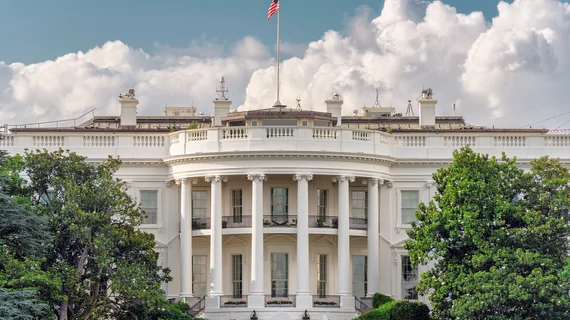CMS officially repeals Trump-era rule granting faster Medicare coverage for breakthrough devices
The Centers for Medicare & Medicaid Services officially repealed a Trump-era rule that would have granted faster Medicare coverage for “breakthrough” medical devices.
CMS finalized the Medicare Coverage of Innovative Technology proposal in January ahead of the White House changeover. It would have eliminated lag time between the Food and Drug Administration approving new technologies and the federal payment program covering them, granting seniors faster access to innovative treatments.
But after postponing implementation from May to December, federal officials are now repealing MCIT following negative feedback. The administration first signaled its intent to do so in September.
“Although we continue to be in favor of enhancing access to new technologies, we are mindful that they may have unknown or unexpected risks and must first ensure such technologies improve health outcomes for Medicare beneficiaries,” CMS Administrator Chiquita Brooks-LaSure said Nov. 12. “The Medicare program needs to implement policies that balance access and appropriate safeguards.”
Stakeholders such as the American College of Radiology have expressed concerns around the lack of transparency and inability to comment on devices considered for expedited coverage. Consumer advocates and health insurers also worried the change could pose patient safety risks for seniors. Meanwhile, medical device manufacturers and other supporters had called the original rule a major regulatory win, which would grant seniors greater access to cutting-edge treatments, and expressed disappointment about the repeal.
“Medical technology developers need to have access to expedient, transparent, and predictable pathways to bring innovative products to Medicare beneficiaries,” Patrick Hope, executive director of the Medical Imaging and Technology Alliance, said in a statement. “We encourage CMS to quickly adopt a coverage process that is expanded beyond just ‘breakthrough’ technologies, given that not all innovative products earn this designation.”
Under the rescinded rule, CMS would have granted simultaneous Medicare coverage with FDA approval, up to a period of four years. After that, the feds would have reevaluated the device based on clinical data to determine whether payment should persist. CMS said it plans to explore coverage process improvements following the repeal and will work various stakeholders to develop a more expeditions process.

